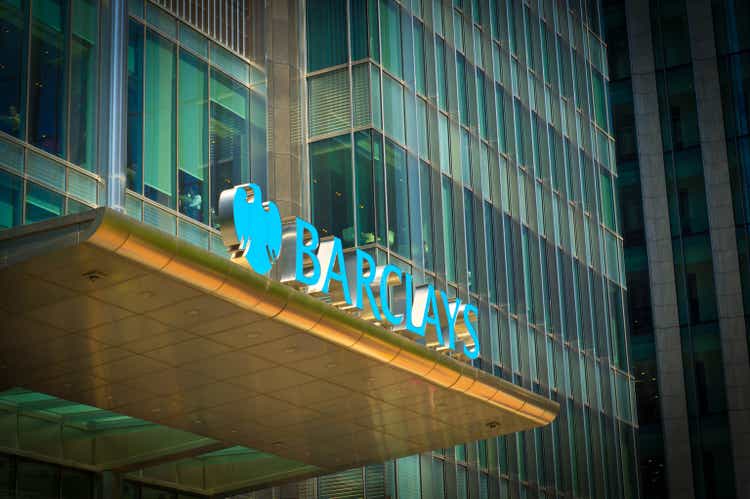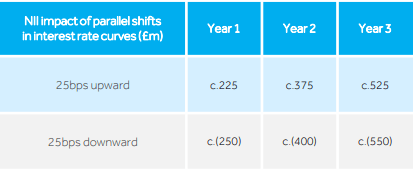Alphotographic/iStock Unreleased via Getty Images
For this week’s article I have decided to write about the mini-Budget announcement last week and how it impacts Barclays (NYSE:BCS).
The share price reaction after the announcement was bad and I would like to talk about some positives coming from the mini-Budget.
If you already know Barclays and its businesses, you can skip directly to the second section of the article.
Overview
Barclays is a British multinational universal bank, headquartered in London. Barclays operates two divisions, Barclays UK and Barclays International.
Barclays UK is the retail bank which provides mortgages, credit cards and business banking services to customers and SMEs in the UK whereas Barclays International is the corporate and investment bank which operates globally.
Impact of the mini-budget on the UK economy
Following the announcement of the mini-Budget last Friday by the Chancellor of the Exchequer, Kwasi Karteng, the UK was disrupted by economic turmoil.
A series of tax cuts announced by the Chancellor which is expected to be funded by additional borrowing has caused the pound to crash, getting close to parity with the U.S. dollar.
The mini-Budget increased the expectation for further rate hikes by the Bank of England to tame inflation because of the inflationary tax cuts.
A lack of fiscal discipline by the government has also increased the possibility of a credit rating downgrade for UK government bonds.
The expectation for higher rates and a potential credit rating downgrade combined sparked a massive sell-off in the UK bond market.
It was such a big sell-off that the Bank of England had to intervene in the bond market to ensure that there was sufficient liquidity and to ensure financial stability.
The Bank of England intervened by buying bonds via QE which will further reinforce inflationary pressures.
So, what does this all mean for Barclays?
Firstly, we will look at the impact of the bond market action for Barclays.
Barclays’ Fixed Income, Currency and Commodities (FICC) trading business generated £3.1 billion in the last six months ending June 2022 representing nearly 40% of the total income for the Global markets business.
Barclays acts as a market maker for buyers and sellers in the UK bond market. The current market volatility is beneficial for Barclays as its FICC trading business will be making money hand over fist during this period.
If you want to learn more about how a market maker makes money, you can read more about it here.
The second positive impact for Barclays is higher interest rate expectations by the Bank of England to tame inflation. Barclays disclosed its interest rate sensitivity in its last trading update which showed a positive correlation with rising rates.
Around two thirds of the Group NII (Net Interest Income) benefit is expected to come from Barclays UK and the remaining from Barclays International.
Barclays Investor Relations
For Barclays UK, the NII benefit is expected to come from the Mortgages and Credit Card businesses.
If there is a supportive economic backdrop with low default rates from the tax cuts, Barclays will benefit from higher mortgage repayments and credit card spending.
Treasury income will be directly inflated from a higher Bank rate. Barclays reported a liquidity pool of £343 billion for June 2022. A large portion of the liquidity pool is held with the Bank of England as cash.
Every percentage point increase in the bank rate should in theory add a minimum £3 billion increase in Treasury revenue.
Conclusion
The share price action following the mini-Budget announcement was negative. I believe there was a lot of forced selling by pension funds trying to raise cash to meet margin calls during the week.
I think it might be a good opportunity to buy Barclays shares at the current share price as the sell-off was exaggerated.


Be the first to comment